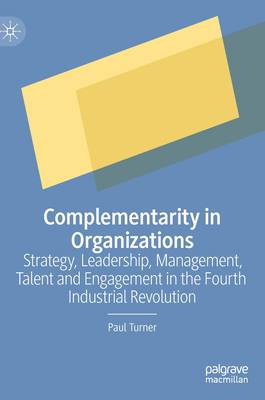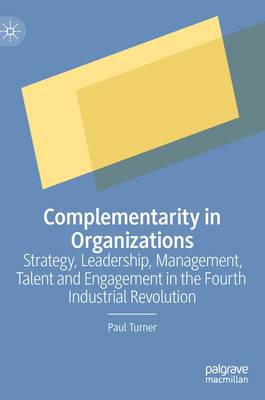
- Retrait gratuit dans votre magasin Club
- 7.000.000 titres dans notre catalogue
- Payer en toute sécurité
- Toujours un magasin près de chez vous
- Retrait gratuit dans votre magasin Club
- 7.000.000 titres dans notre catalogue
- Payer en toute sécurité
- Toujours un magasin près de chez vous
Complementarity in Organizations
Strategy, Leadership, Management, Talent and Engagement in the Fourth Industrial Revolution
Paul TurnerDescription
The Fourth Industrial Revolution will fundamentally alter the way we live, work, and relate to one another. Robotics, AI, neuro-technologies and autonomous vehicles will alter behaviours, relationships, and meaning. In this context, an important question that organizations must ask themselves is how can they adapt their business models and values to compete successfully?
In answering this question, this book applies the concept of complementarity to business areas that are often dealt with independently: strategy, leadership, management, talent and engagement. Organizational success will not only be achieved by singularity but also by organization wide interventions that connect each of the functions to a broader purpose. The author argues that whilst the factors of an organisation will continue to affect each other in one of three ways: independent, substitutive, and complementary, it will be towards the latter that a greater level of importance isattached. The book describes how complementarity has arisen in non- business fields and how an interpretation of it might be a useful paradigm for the modern business organisation. Finally, the book explores organisational and individual competences and how they might be applied in the complementarity model.
Spécifications
Parties prenantes
- Auteur(s) :
- Editeur:
Contenu
- Nombre de pages :
- 268
- Langue:
- Anglais
Caractéristiques
- EAN:
- 9783031106538
- Date de parution :
- 24-07-22
- Format:
- Livre relié
- Format numérique:
- Genaaid
- Dimensions :
- 148 mm x 210 mm
- Poids :
- 489 g







